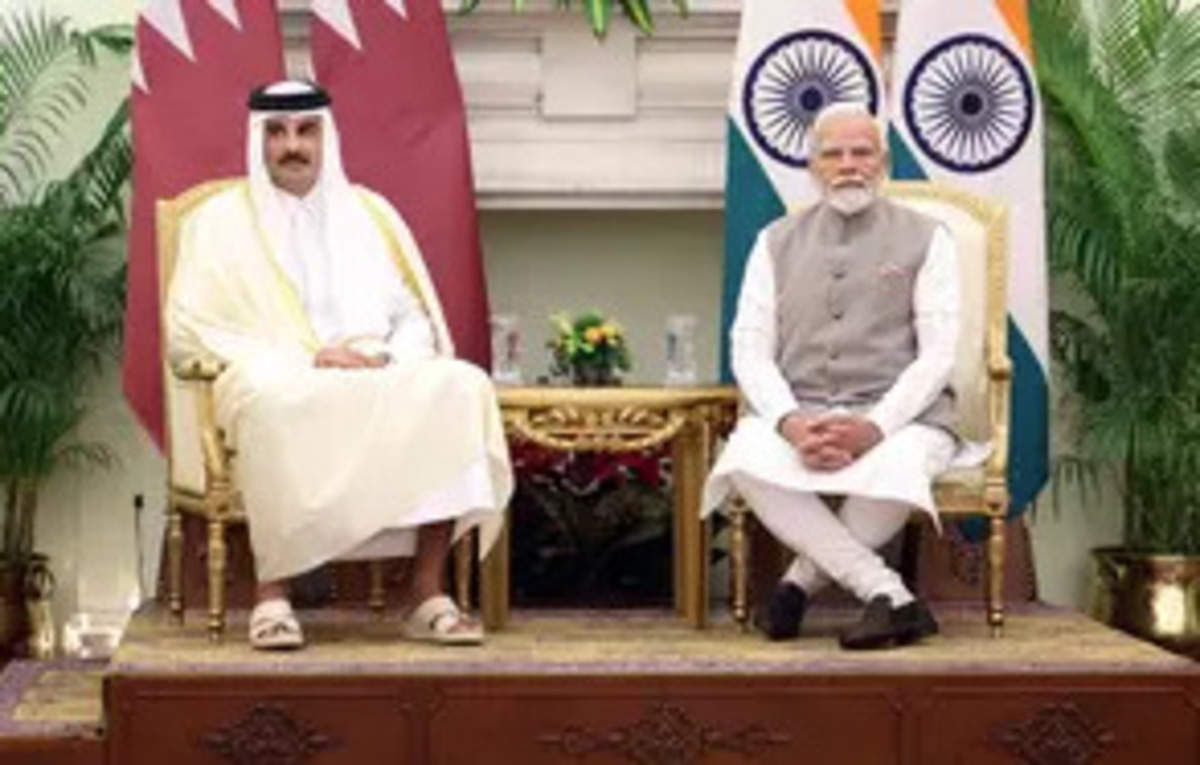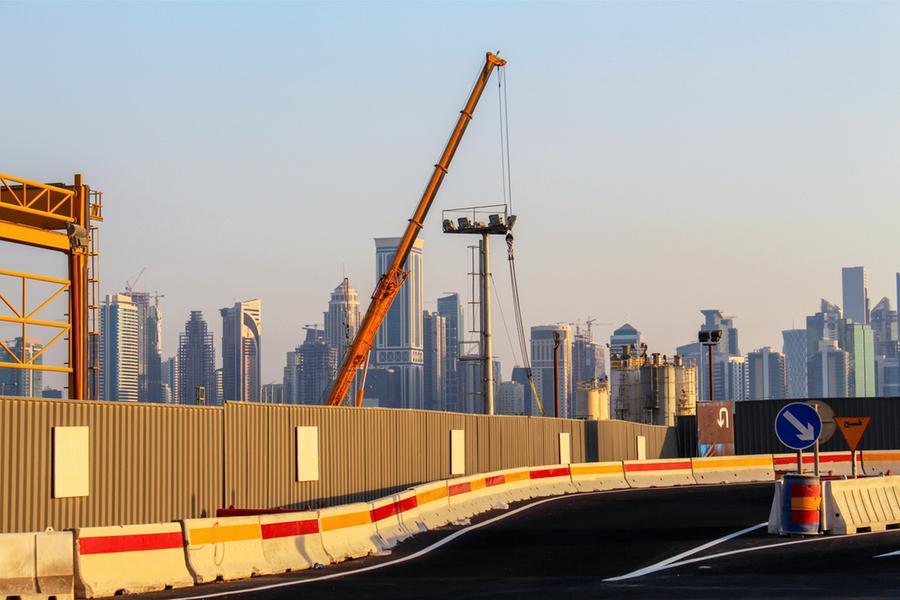Israel orders Al Jazeera to close its local operation

Israel ordered the local offices of Qatar’s Al Jazeera satellite news network to close Sunday, escalating a long-running feud between the broadcaster and Prime Minister Benjamin Netanyahu’s hard-line government as Doha-mediated cease-fire negotiations with Hamas hang in the balance.
The extraordinary order, which includes confiscating broadcast equipment, preventing the broadcast of the channel’s reports and blocking its websites, is believed to be the first time Israel has ever shuttered a foreign news outlet.
Al Jazeera went off Israel’s main cable provider in the hours after the order. However, its website and multiple online streaming links still operated Sunday.
The network has reported the Israeli-Hamas war nonstop since the militants’ initial cross-border attack Oct. 7 and has maintained 24-hour coverage in the Gaza Strip amid Israel’s grinding ground offensive that has killed and wounded members of its own staff. While including on-the-ground reporting of the war’s casualties, its Arabic arm often publishes verbatim video statements from Hamas and other militant groups in the region.
“Al Jazeera reporters harmed Israel’s security and incited against soldiers,” Netanyahu said in a statement. “It’s time to remove the Hamas mouthpiece from our country.”
Al Jazeera issued a statement vowing it will “pursue all available legal channels through international legal institutions in its quest to protect both its rights and journalists, as well as the public’s right to information.”
“Israel’s ongoing suppression of the free press, seen as an effort to conceal its actions in the Gaza Strip, stands in contravention of international and humanitarian law,” the network said. “Israel’s direct targeting and killing of journalists, arrests, intimidation and threats will not deter Al Jazeera.”
Israeli media said the order allows Israel to block the channel from operating in the country for 45 days.
The Israeli government has taken action against individual reporters over the decades since its founding in 1948, but broadly allows for a rambunctious media scene that includes foreign bureaus from around the world, even from Arab nations. That changed with a law passed last month, which Netanyahu’s office says allows the government to take action against a foreign channel seen as “harming the country.”
Israeli Communication Minister Shlomo Karhi later published footage online of authorities raiding a hotel room Al Jazeera had been broadcasting from in east Jerusalem, which the Palestinians hope to one day have for their future state. He said officials seized some of the channel’s equipment there.
“We finally are able to stop Al Jazeera’s well-oiled incitement machine that harms the security of the country,” Karhi said.
The ban did not appear to affect the channel’s operations in the occupied West Bank or Gaza Strip, where Israel wields control but which are not sovereign Israeli territory.
The decision threatens to heighten tensions with Qatar at a time when the Doha government is playing a key role in mediation efforts to halt the war in Gaza, along with Egypt and the United States.
Qatar has had strained ties with Netanyahu in particular since he made comments suggesting that Qatar is not exerting enough pressure on Hamas to prompt it to relent in its terms for a truce deal. Qatar hosts Hamas leaders in exile at a political office in Doha.
The sides appear to be close to striking a deal, but multiple previous rounds of talks have ended with no agreement.
In a statement Sunday, Hamas condemned the Israeli government order, calling on international organizations to take measures against Israel.
The Foreign Press Association in Israel criticized the order.
“With this decision, Israel joins a dubious club of authoritarian governments to ban the station,” it said. “This is a dark day for the media.”
Omar Shakir, Human Rights Watch’s Israel and Palestine director, criticized the Israeli order as “an assault on freedom of the press.”
“Rather than trying to silence reporting on its atrocities in Gaza, the Israeli government should stop committing them,” he added.
Shortly after the government’s decision, Cabinet members from the National Unity party criticized its timing, saying it “may sabotage the efforts to finalize the negotiations and stems from political considerations.” The party said that in general, it supported the decision.
Israel has long had a rocky relationship with Al Jazeera, accusing it of bias. Relations took a major downturn nearly two years ago when Al Jazeera correspondent Shireen Abu Akleh was killed during an Israeli military raid in the occupied West Bank.
Those relations further deteriorated following the outbreak of Israel’s war against Hamas on Oct. 7, when the militant group carried out a cross-border attack in southern Israel that killed 1,200 people and took 250 others hostage. Since then, the Israeli military campaign in Gaza has killed over 34,000 people, according to local health officials there, who don’t break figures down into civilians and combatants.
In December, an Israeli strike killed an Al Jazeera cameraman as he reported on the war in southern Gaza. The channel’s bureau chief in Gaza, Wael Dahdouh, was wounded in the same attack. Dahdouh, a correspondent well-known to Palestinians during many wars, later evacuated Gaza but only after Israeli strikes killed his wife, three of his children and a grandson.
Al Jazeera is one of the few international media outlets to remain in Gaza throughout the war, broadcasting bloody scenes of airstrikes and overcrowded hospitals and accusing Israel of massacres.
Criticism of the channel is not new, however. The U.S. government singled out the broadcaster during America’s occupation of Iraq after its 2003 invasion toppled dictator Saddam Hussein and for airing videos of the late al-Qaida chief Osama bin Laden.
Al Jazeera has been closed or blocked by other Mideast governments. Most notably in 2013, Egyptian authorities raided a luxury hotel used by Al Jazeera as an operating base after the military takeover that followed mass protests against President Mohammed Morsi.
Three Al Jazeera staff members, Australian Peter Greste, Egyptian-Canadian Mohamed Fahmy and Egyptian producer Baher Mohamed received 10-year prison sentences, but were released in 2015 following widespread international criticism.
Related
Ashghal commences roads, infrastructure development in Birkat Al Awamer
Doha, Qatar: The Public Works Authority 'Ashghal' started the implementation of the Roads and Infrastructure Development Project in Birkat Al Awamer. T
India-Qatar trade agreement must be approached with caution: GTRI –…
India should tread cautiously on a potential free trade agreement (FTA
Qatar’s Ashgal likely to award industrial areas infra consultancy contract…
Qatar’s Public Works Authority (Ashghal) is expected to award the design and lead consultancy contract for the North of New Industrial Area Roads and Inf
Qatar’s $2.5bn green bonds fund enhances renewable energy and infrastructure
Doha, Qatar: Qatar continues to boost its investments in sustainable development, demonstrating its competitiveness on the global stage. An official no












